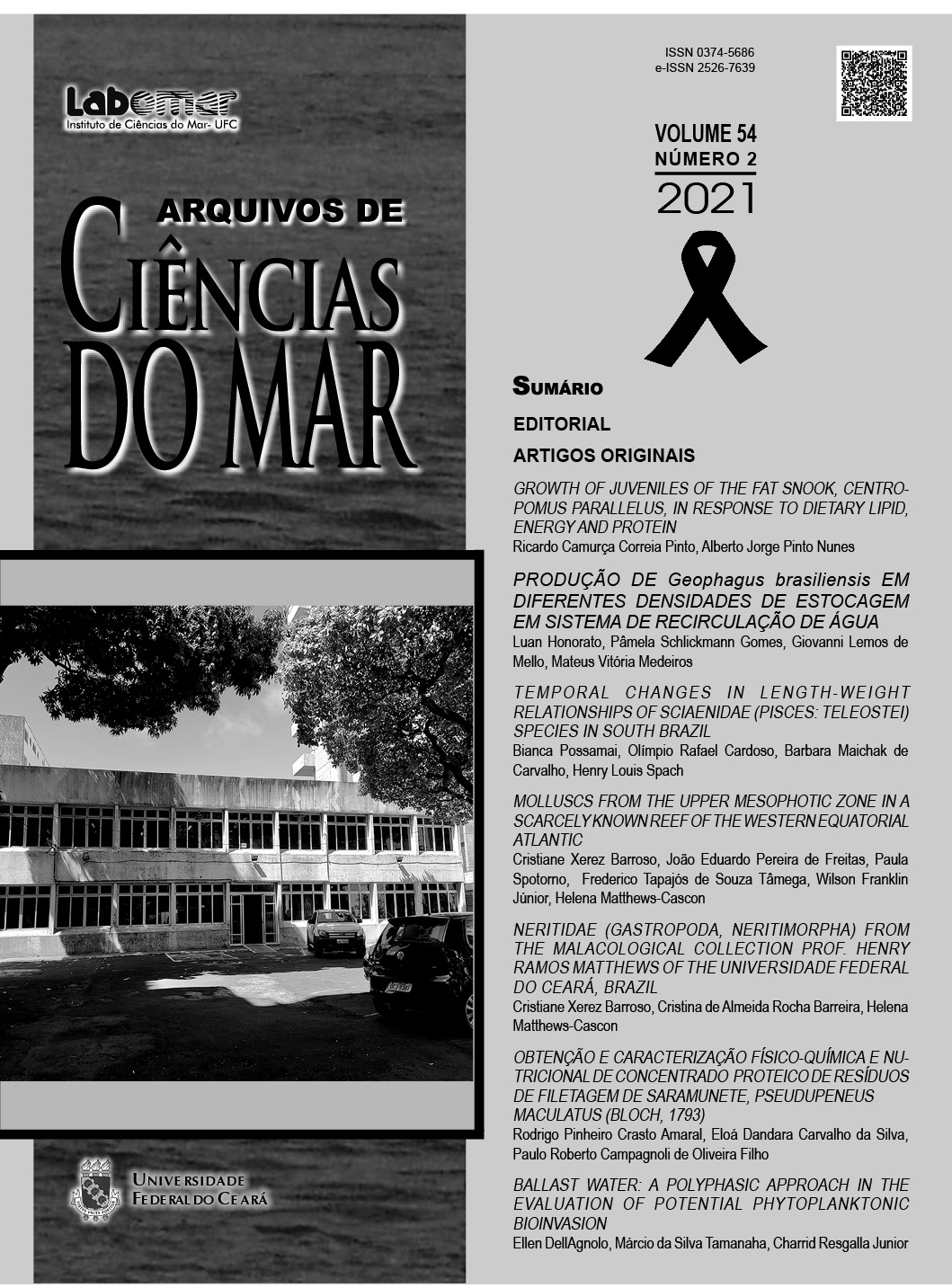NERITIDAE (GASTROPODA, NERITIMORPHA) FROM THE MALACOLOGICAL COLLECTION PROF. HENRY RAMOS MATTHEWS OF THE UNIVERSIDADE FEDERAL DO CEARÁ, BRAZIL
Neritidae (Gastropoda, Neritimorpha) depositados na Coleção Malacológica Prof. Henry Ramos Matthews da Universidade Federal do Ceará, Brasil
DOI:
https://doi.org/10.32360/acmar.v54i2.62441Abstract
The basic information obtained from scientific collections help us to understanding of Earth’s diverse biota and its biological processes. The Malacological Collection Prof. Henry Ramos Matthews (CMPHRM) of the Universidade Federal do Ceará (UFC), Brazil, is a reference about the biodiversity, mainly marine, of northeastern Brazil. In this collection, the gastropod molluscs of the family Neritidae were among the most representative in number of lots. Since an accurate geographical distribution knowledge is one of the
fundamental factors to the study of biodiversity, the present study aimed to describe the composition and spatially analyse the neritids deposited in the CMPHRM/UFC. There is a total of 314 lots of the Neritidae deposited at CMPHRM, belonging to eight species (Nerita chamaeleon, Nerita chlorostoma, Nerita fulgurans, Nerita tessellata, Neritina virginea, Neritina meleagris, Neritina zebra, and Smaragdia viridis). The Malacological Collection Prof. Henry Ramos Matthews of the Universidade Federal do Ceará has representatives of all species of Neritidae recorded in the Brazilian Province, which are important for confirming previous records or establishing new occurrence records.
Keywords: Neritina, Nerita, Smaragdia, Brazilian Province
Downloads
Published
Issue
Section
License
1. Proposta de Política para Periódicos de Acesso Livre
Autores que publicam nesta revista concordam com os seguintes termos:
- Autores mantém os direitos autorais e concedem à revista o direito de primeira publicação, com o trabalho simultaneamente licenciado sob a Licença Creative Commons Attribution que permite o compartilhamento do trabalho com reconhecimento da autoria e publicação inicial nesta revista.
- Autores têm autorização para assumir contratos adicionais separadamente, para distribuição não-exclusiva da versão do trabalho publicada nesta revista (ex.: publicar em repositório institucional ou como capítulo de livro), com reconhecimento de autoria e publicação inicial nesta revista.
- Autores têm permissão e são estimulados a publicar e distribuir seu trabalho online (ex.: em repositórios institucionais ou na sua página pessoal) a qualquer ponto antes ou durante o processo editorial, já que isso pode gerar alterações produtivas, bem como aumentar o impacto e a citação do trabalho publicado (Veja O Efeito do Acesso Livre).

